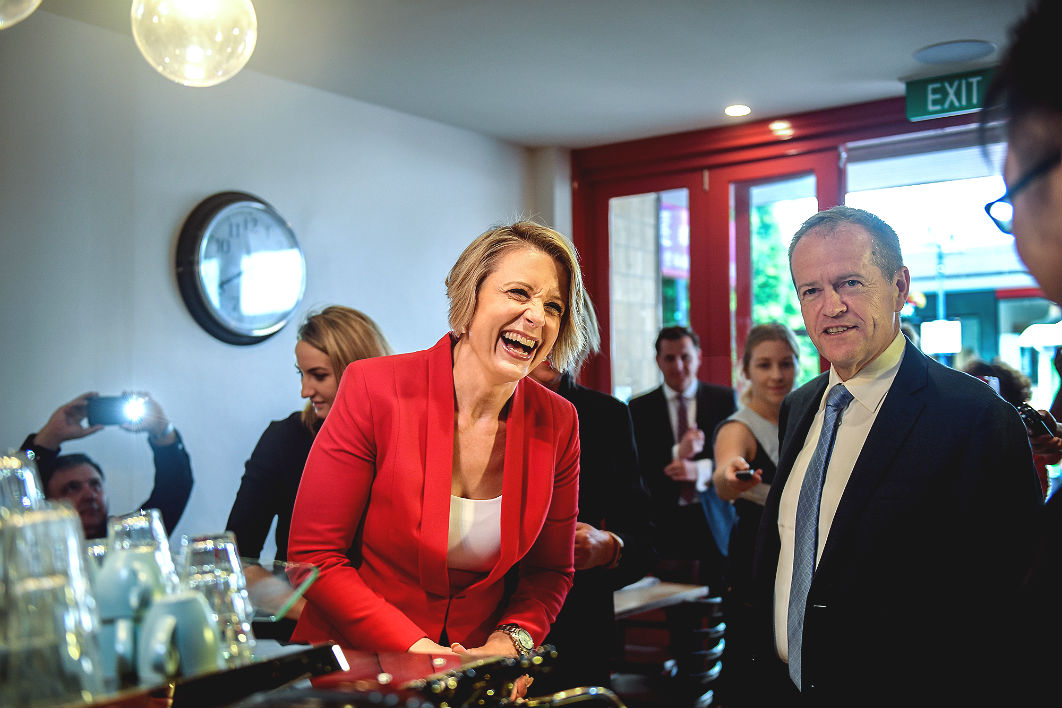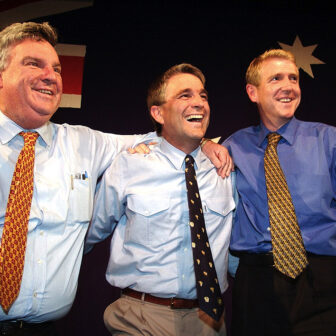In late 2015, during the final week of Tony Abbott’s prime ministership, consumers of Australian politics were treated to a bizarre spectacle. The death of Western Australian MP Don Randall had triggered a by-election in the electorate of Canning, and the contest quickly became a test of Abbott’s leadership. Just why was never really explained — the government enjoyed a thirty-seat majority, and one loss would barely have dented it — but through the whispers and backgrounding and commentator-nodding, Canning snowballed to “crucial” status.
By some accounts, the loss of Canning would mean the end of Abbott, so he needed to keep the swing to below Randall’s 11.81 per cent margin. By other accounts, any swing above a certain number (say 5 or 6 per cent) and Tony was still toast. In the end, the Canning frenzy contributed to Abbott’s toppling before the by-election even took place (“If we don’t act now, we’ll lose Canning!”) and the electorate was safely retained for the Libs by Andrew Hastie (swing to Labor: 6.55 per cent).
It was a classic case of political-class self-lubricating nothingness, where ends become means and narratives drive realities.
Despite stubbornly held views to the contrary, by-elections are not reliable indicators of future electoral success. But even if they were, pulling out all stops simply because a big swing would presage a future defeat obviously confuses cause and effect. Because so little is generally at stake in by-elections — because governments won’t topple — people feel free to vote with other things in mind. Most commonly, they want to send the government a reminder that they shouldn’t take support for granted.
But last Saturday we experienced that rare thing: a by-election that really did matter. If Labor had taken Bennelong, the Turnbull government’s tally of lower-house members would have dropped to seventy-five out of 150. Liberal leadership mutterings would have resumed, and our evidently fraying prime minister would have carried further stress into the summer break.
It’s a seat that Labor has won before — once, in 2007 — and this month it had a star candidate, former premier Kristina Keneally who, for all her Obeid baggage, enjoys recognition, appeal and (despite an unfortunate tendency to resort, in interviews, to “learn your lines mate and repeat them” politics-speak) an easy charm.
The opinion polls ranged from 50 to 53 per cent for Alexander after preferences, but on the day Labor achieved a swing of only 5 per cent, leaving it another 5 short of victory. It might as well have been 9 per cent, because all that matters is that Bennelong didn’t change hands.
The opinion polls were a little off, but polls of single seats don’t have a great record at the best of times, and Bennelong, with a language other than English spoken in a little over 50 per cent of households, would be harder to survey than most.
This was an unusual by-election in another way. Normally the departed MP’s personal vote dissipates, often exacerbated by voter resentment at the manner of their leaving. This, and the urge to inflict pain on an arrogant government, along with the reluctance of parties in power to contest seats held by oppositions, helps account for those oft-quoted statistics: for example, as the Parliamentary Library observed in 2014, “the average two-party preferred swing against the government of the day has been 4.0 per cent.”
In Bennelong, the popular sitting member recontested. The other two occasions on which this has occurred, both also resulting from transgressions of section 44 of the constitution — Nationals leader Barnaby Joyce last month in New England, and Liberal Jackie Kelly in Lindsay in 1996 — saw swings to the government.
Keneally and Labor, aware that Alexander is well-regarded locally, attempted to make the vote about the Turnbull government. Unfortunately for the Labor candidate, leader Bill Shorten insisted on campaigning by her side, day in and out. Shorten is highly likely to become prime minister at the next election, so he must be doing a lot of things right, but it won’t be due to any great affection, admiration or even respect in the electorate. Like Abbott before him (though to a lesser degree), Shorten can claim credit for helping create the conditions for the change of government, but voters aren’t longing to install him in the Lodge.
Yet there he was, hanging around like some jealous boyfriend, inserting himself into meets and greets, bombing every photo op, not letting Keneally out of his sight. The calculation, presumably, was that while his presence no doubt lessened her chances of success, he could, in the event of a win, claim a big part of the responsibility.
Malcolm Turnbull earlier on veered into fringe territory with warnings of Keneally bringing in refugee hordes, then confused himself over Eddie Obeid’s time in cabinet, and then, late in the campaign, settled on trying to make the vote about Shorten, stressing that a Keneally win could see Labor form government. Had Saturday been a general election rather than a by-election, Bennelong — with a 10 per cent margin and Alexander as MP — would have been very unlikely to go to Labor, so it made sense to encourage voters to think in those terms: that the very question of which party forms government was at stake. (Assuring them that Keneally would soon be representing them in the Senate anyway was icing on the cake.)
In the end, Labor achieved roughly the result it could have expected in Bennelong had this been a general election.
The political bubble has largely judged Bennelong a “reset”/“renaissance” for the prime minister, a pleasant send-off for the Christmas break. But Labor remains as likely as ever to form government at the next election, and in two or three months Malcolm still has his date with “thirty losing Newspolls in a row” (number twenty-five landed today). By then, Bennelong will be a distant memory in commentatorland.
Shorten, meanwhile, should thank Kevin Rudd for changing the rules and making it so difficult to blast him out — and not for the first time since taking over in 2013.
And Kristina Keneally? She probably dodged a bullet, because Bennelong is not the sort of seat that Labor could expect to hold beyond the next two or so elections, when it’s back in opposition. Life in the Senate, near the top of the NSW ticket, would be much more comfy.
Senators with leadership ambitions have been known to swap chambers after searching long and hard for a safe seat. Bennelong is not the place for a Labor candidate who is in it for the long haul. ●





